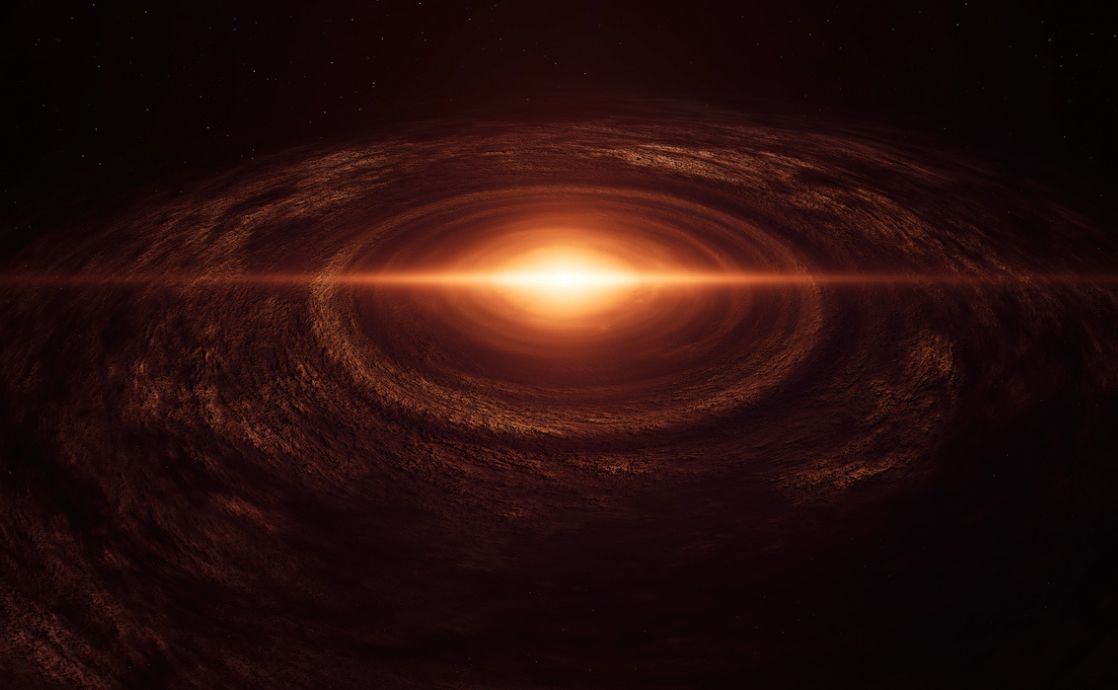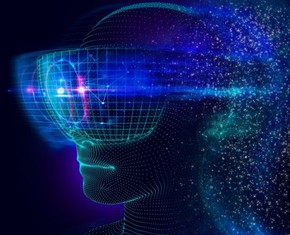The views expressed in our content reflect individual perspectives and do not represent the authoritative views of the Baha'i Faith.
For more than a century now, science has assured us that our universe began about 14 billion years ago with a Big Bang — but some of the newest science has begun to question and challenge that assumption.
This kind of questioning of major scientific conclusions generally begins to occur immediately before a Newton or an Einstein comes along and upends everything. So — are we on the cusp of a scientific revolution, not only in the way we understand the universe, but in the ways we understand ourselves?
Perhaps.
Those revolutions have certainly happened before. Galileo and Copernicus, when they discovered that the Earth was not the center of the universe, helped human beings recognize their relative insignificance. Darwin created a similar revolution. Einstein and his theory of relativity caused us to relate to the universe in a new and different way, changing our perceptions of time and eternity.
RELATED: Is the Universe Consciously “Fine-Tuned” So Life Can Exist?
The James Webb Space Telescope, now observing the universe from its perch a million miles away, has contributed massively to this impending revolution. Its ability to peer back in cosmic time to some of the universe’s oldest galaxies has shown us a startling sight: fully-formed, mature galactic systems that emerged much earlier than the conventional understandings of the Big Bang theory ever considered possible.
Recently two well-known, respected physicists — the astrophysicist Dr. Adam Frank of the University of Rochester and the theoretical physicist Dr. Marcelo Gleiser from Dartmouth — wrote about this stunning discovery in the New York Times. Their essay, titled “The Story of Our Universe May Be Starting to Unravel,” put forth a previously heretical scientific idea:
According to the standard model [of cosmology], which is the basis for essentially all research in the field, there is a fixed and precise sequence of events that followed the Big Bang: First, the force of gravity pulled together denser regions in the cooling cosmic gas, which grew to become stars and black holes; then, the force of gravity pulled together the stars into galaxies.
The Webb data, though, revealed that some very large galaxies formed really fast, in too short a time, at least according to the standard model. This was no minor discrepancy. The finding is akin to parents and their children appearing in a story when the grandparents are still children themselves.
The Big Bang theory, long largely thought of as settled science, has withstood scientific challenges for a century now, and has become a central pillar of what physicists call the “standard model of cosmology.” But the newest Webb Telescope observations, as well as a growing scientific debate over the rate of expansion of the universe known as the Hubble Constant, has begun to undermine the foundations of that standard model. Frank and Geisler wrote:
Physicists and astronomers are starting to get the sense that something may be really wrong. It’s not just that some of us believe we might have to rethink the standard model of cosmology; we might also have to change the way we think about some of the most basic features of our universe — a conceptual revolution that would have implications far beyond the world of science. …
We may be at a point where we need a radical departure from the standard model, one that may even require us to change how we think of the elemental components of the universe, possibly even the nature of space and time.
When it does occur, what does that “conceptual revolution” have in store for us? The Baha’i teachings offer humanity some clues.
First, one of the primary Baha’i principles, expressed here in the writings of Abdu’l-Baha, holds that religion and science must agree: “… among the teachings of Baha’u’llah is that religion must be in conformity with science and reason … The foundation must be solid and must not consist of imitations.”
Second, the Baha’i teachings clearly say that religion without science is mere superstition. In a talk he gave in Washington, D.C., in 1912, Abdu’l-Baha said:
… religion and science are in complete agreement. Every religion which is not in accordance with established science is superstition. Religion must be reasonable. If it does not square with reason, it is superstition and without foundation.
Third, the Baha’i writings offer an expansive, unlimited, and unrestricted view of creation, just as they reveal an unlimited, inconceivable Creator:
The Creator has ever had a creation, and the rays have ever emanated and shone forth from the Sun of Truth; for a lightless sun would be impenetrable darkness. The names and attributes of God require the existence of things, and no cessation in the outpouring of God’s ancient grace can ever be contemplated, for this would be contrary to the divine perfections.
That passage, from Abdu’l-Baha’s Some Answered Questions, posits not only an eternal Creator but an eternal creation, one unbounded either by time or space.
RELATED: How Big is the Universe? The JWST Aims to Find Out
Finally, Baha’u’llah — the prophet and founder of the Baha’i Faith — attests to humanity that just as the Creator is eternal, so is the creation:
Know assuredly that God’s creation hath existed from eternity, and will continue to exist forever. Its beginning hath had no beginning, and its end knoweth no end. His name, the Creator, presupposeth a creation …
It’s not easy for people to hold vast concepts like this one, especially when we’re used to thinking of ourselves as limited and temporal creatures, bounded by time and space and the limitations of our personal experiences. But the Baha’i teachings ask us to take that leap, both scientifically and spiritually — to try to see beyond the borders of the physical and gaze into the borderless universe, knowing that we will all exist eternally.
















Comments
Sign in or create an account
Continue with Googleor